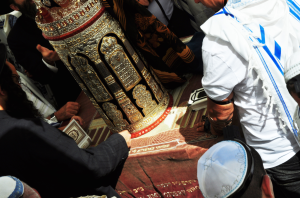The answer to your question is twofold:
Firstly, your question is asked in the Midrash, which answers that the Almighty “…desired to purify (sanctify) His creations, therefore He increased for them mitzvos.” From here we learn that the 613 mitzvos were not given to us to fulfill for G-d’s sake, rather for our own good, as they purify and sanctify us. One way to understand this is through the Torah’s definition of the Jewish people as an Am Kadosh or a Holy Nation. What does it mean to be a “holy nation”? This means that holiness should permeate our very existence, even our physical existence. Let’s see how that plays out with the fulfillment of mitzvos.
The Talmud calculates the 613 mitzvos as the sum total of the negative mitzvos (or “do nots”), which are 365, and the positive mitzvos (the “to dos”), which are 248. The 365 correspond to the days of the year, and the 248 correspond to a calculation of body parts.
The message is, that through the fulfillment of the mitzvos we sanctify every day of the year and elevate all of our body parts. We elevate our entire existence to the service of G-d. In that way we are a holy nation.
To simply be holy in one’s heart, although that itself is praiseworthy and a level to achieve, is not sufficient to be a Holy Nation. We further have a mandate to be a light among the nations, to teach by example, which one can’t do by what’s in the heart alone (We rabbis call that a “Jewish heart condition”).
The second aspect of this lies in the deeper meaning of the word “mitzvah.” On the simple level, it means “command” (not “good deed”). The deeper meaning comes from the word tzavta, which means togetherness or partnership. This tells us that through the mitzvos, we become partners with G-d in the ongoing perfection of the world. This is the true meaning of tikkun olam, or perfecting the world. The Torah and its mitzvos are the “manufacturer’s guide” of how to fix and perfect the world, and to elevate it to higher spiritual plateaus.
What I have written here is merely a nutshell version of some very profound concepts. I encourage you to study the 613 mitzvos in depth, and to attempt to understand how each mitzvah is a window through which one is able to peer into, and experience, immense spiritual pleasures and joy.
Sincerely,
Rabbi Yerachmiel Fried



